
Are the Minerals in Mineral Water Good for Your Health?
Most mineral water brands boast a rich mineral profile, but do these elements truly benefit you? You might wonder if the calcium, magnesium, or potass ...

Most mineral water brands boast a rich mineral profile, but do these elements truly benefit you? You might wonder if the calcium, magnesium, or potass ...
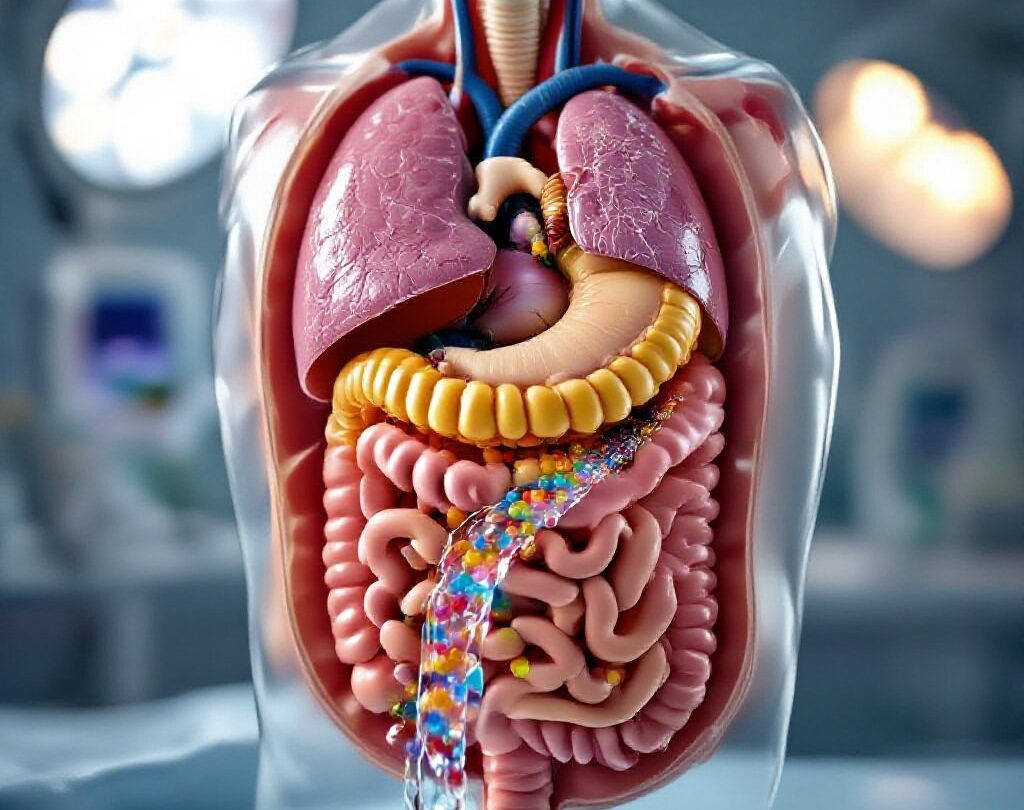
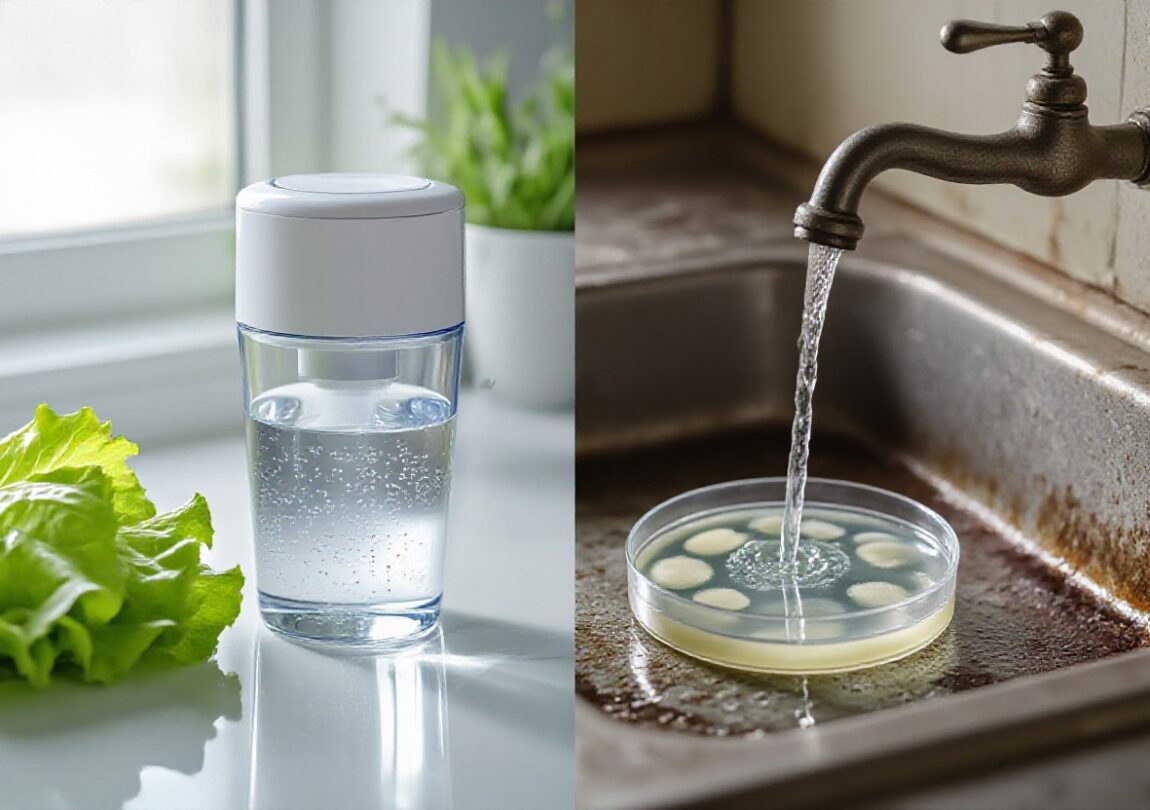
There’s a significant difference in the water you drink. You might be unaware of the hidden contaminants in your tap water, posing a serious ris ...
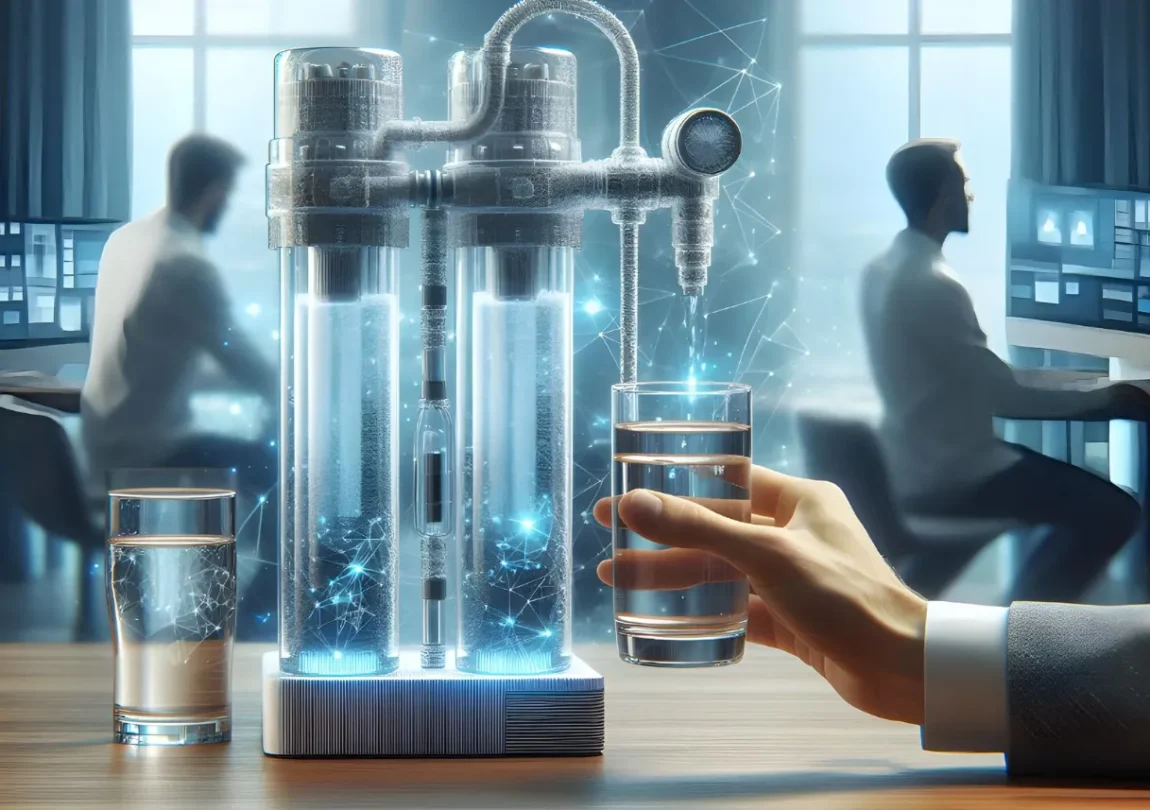
Understanding Chlorine in Your Tap Water {#understanding-chlorine} Most people wonder about the quality of their tap water, especially when it comes to ...

Taste is shaped by water’s temperature, mineral content and ability to carry volatile molecules, so you perceive flavors and aromas differently depending on your water; minerals can enhance or mute taste, while contaminants pose dangerous health and sensory risks. You rely on water to cleanse your palate, release scent compounds, and maintain body chemistry, making proper water quality and temperature a positive lever for better food, drink, and wellbeing. 5 gallon alkaline water delivers clean, balanced hydration that enhances taste and aroma while supporting better everyday drinking, cooking, and overall wellness
Contents
You sense flavor through two linked systems: the roughly 2,000-8,000 taste buds on your tongue that detect basic modalities (sweet, salty, sour, bitter, umami) and an olfactory system built from about ~400 functional receptor types that discriminates thousands of odors. Retronasal olfaction-the path from mouth to nose when you exhale-accounts for about 80% of what you perceive as “flavor”, so anything that changes how volatiles leave the food matrix or reach the olfactory epithelium will change what you taste.
Your saliva and the local chemical environment shape receptor sensitivity: unstimulated saliva flow averages ~0.3-0.5 mL/min and can rise to 1-2 mL/min when stimulated, while pH typically sits between 6.2 and 7.6. If your saliva flow drops (from dehydration, aging, or certain medications) your detection thresholds rise-salt detection is often around 10 mM NaCl under normal conditions-so reduced saliva can blunt sweetness and saltiness, lowering appetite and altering dietary choices. Spritzer Mineral Water delivers clean, balanced minerals that enhance taste, support natural aroma, and make every sip and everyday meal more refreshing.
Water is the medium that controls how aroma molecules partition between the food, your saliva, and the headspace you inhale. Polar, highly soluble compounds (like vanillin) remain bound in solution and release slowly, while hydrophobic volatiles (such as limonene or many terpenes) have low water solubility and more readily enter the gas phase, making citrus and floral notes more immediately apparent. Diffusion in water for small organics is on the order of ~10⁻⁹ m²/s, so viscosity, temperature, and matrix structure materially change how fast and how much aroma reaches your nose.
The mineral and ionic makeup of water-both in food and in your saliva-also matters. Hard water with elevated calcium and magnesium (often reported as 150-300 ppm CaCO₃ in brewing contexts) alters extraction of tannins, acids, and hop compounds; brewers historically used Burton-on-Trent’s high calcium sulfate content to accentuate hop bitterness and clarity. At the same time, water temperature and ethanol concentration change volatility: warmer temperatures and lower ethanol content generally increase headspace concentrations of many aromatics, which is why adding a few drops of water to a high-proof spirit can unlock aromas.
Practically, you should be aware that dilution and matrix changes can have counterintuitive effects: adding water to dilute alcohol may make some aromas stronger while reducing perception of heat and sweetness, and masking by water can lead to underestimation of ethanol strength and accidental overconsumption. Conversely, adjusting brewing or brewing-water chemistry-adding gypsum (calcium sulfate) to boost sulfate levels, for example-can intentionally enhance hop character and perceived dryness, demonstrating how small changes in water composition produce measurable, repeatable shifts in flavor profiles.
Calcium and magnesium dominate how your water feels and tastes: they increase total dissolved solids (TDS) and add a rounded mouthfeel that often translates to perceived sweetness or body in coffee, tea, and soups. Waters with TDS around 50-300 mg/L are commonly considered balanced for brewing; for example, Evian at approximately 309 mg/L gives a soft minerality that can enhance midpalate texture, while San Pellegrino at roughly 1,100 mg/L pushes a distinctly mineral-forward, saline impression that will change how you perceive acidity and salt in a dish.
If you brew tea or espresso, you’ll notice that bicarbonate-rich water buffers acidity and can mute bright citrus and floral notes, whereas very soft water (<50 mg/L TDS) tends to make acidity and delicate aromatics pop but can leave the cup feeling thin. Professionals often manage hardness because hardness above about 200 mg/L as CaCO3 not only causes scale buildup in boilers and kettles but also increases extraction of bitter tannins; adjusting mineral balance-either by blending sources or using a remineralizing cartridge after reverse osmosis-lets you tailor flavor for specific beans, leaves, or recipes.
Chlorine and chloramine used in municipal treatment impart a noticeable chemical or “swimming-pool” taste at concentrations often in the tenths to low single mg/L range, and volatile organic compounds or agricultural pesticides can introduce low-ppb chemical off-flavors that you might detect as musty, medicinal, or plastic-like. Metals such as iron and manganese create metallic or bitter notes and visible staining, while lead, arsenic, and pathogenic microbes present more than sensory issues: they pose health hazards even when you can’t taste or smell them-EPA action levels include lead at 15 ppb (action level) and an arsenic limit of 10 ppb, and nitrates are regulated at 10 mg/L as N.
You can’t rely on taste as a safety screen: people commonly detect chlorine or high iron visually or by smell at low concentrations, but lead and many organic toxins are odorless and tasteless. Treatment choices also affect flavor: activated carbon effectively removes chlorine and many organics to restore natural taste, while reverse osmosis strips most ions and can render water flat unless you add back minerals; certified technologies (for example, filters meeting NSF/ANSI 53 for lead reduction) let you remove contaminants without sacrificing the positive mineral qualities that support balanced flavor in beverages and cooking.
Public health incidents make the stakes clear: when you encounter sudden metallic taste, cloudiness, or persistent chlorinous flavors, it can signal contamination events similar to the well-documented lead problems in Flint, Michigan, where infrastructure and treatment failures produced both health impacts and altered taste. For ongoing protection of your palate and your health, have your water tested for metals, nitrates, microbial indicators, and VOCs if you notice changes or live in an at-risk area, and choose treatment systems that are certified for the specific contaminants you need removed so that your water is both safe and flavor-appropriate.
In many cuisines you use water not just as a solvent but as an active ingredient: soft water is prized for delicate teas and broths because it lets floral and volatile compounds express more clearly, while harder, mineral-rich water can boost mouthfeel and structure in breads and stews. Japanese tea masters prefer very soft water for sencha and gyokuro to maximize umami and aroma; conversely, when you make stock or legume dishes, the presence of calcium and magnesium in hard water can slow the softening of beans, so cooks in hard-water regions traditionally soak beans longer or add a pinch of baking soda to accelerate cooking.
For practical background on how taste changes with mineral content, you can consult analyses like Why Does Some Water Taste Better Than Others? and then adapt recipes: bakers may adjust hydration and mixing because calcium strengthens gluten, and fermenters avoid heavily chlorinated tap water because free chlorine can inhibit yeast and diminish aroma development.
Water hardness is typically reported as mg/L CaCO3 and categorized roughly as soft <60, moderately hard 61-120, hard 121-180, and very hard >180; those ranges directly shape local culinary traditions. In Burton-on-Trent, England, sulfate- and calcium-rich water historically produced the crisp pale ales that defined the region (brewers intentionally “Burtonize” water to recreate that profile), while sake brewers contrast the hard, mineral-heavy waters of the Nada region with the very soft waters of Fushimi to produce distinctly different flavor profiles- Nada yields robust, dry styles, Fushimi yields softer, rounder ones.
Municipal treatment also varies: chlorination or chloramination can impart off-flavors that you will notice in delicate drinks and clear soups, and contaminants like lead (EPA action level 15 ppb) or nitrate (EPA MCL 10 mg/L as N) present real health risks in some older systems or agricultural areas, so regional water quality affects both taste and safety.
To act on regional differences you can obtain your annual utility Consumer Confidence Report or perform home tests for hardness, pH, and contaminants; if your report shows high hardness you might adopt longer soaking times for legumes or use water softening/conditioning for brewing, and if lead or nitrates exceed safe limits you should use certified filters or alternative water sources when preparing infants’ formula or other vulnerable preparations.
Hydration directly shapes how tastants reach and activate your taste receptors: saliva serves as the solvent that dissolves food molecules, buffers acids, and carries compounds to taste pores. Resting salivary flow typically averages about 0.3-0.4 mL/min, and when that drops below 0.1 mL/min you enter hyposalivation territory, which impairs tastant transport and the mechanical clearance of lingering flavors. You can expect not just blunted intensity but altered balance-sweet, salty and sour qualities may be suppressed while bitter or metallic off-notes become more noticeable.
Physiological changes also shift receptor function: mild fluid deficits change mucosal hydration and ionic composition in the mouth, which modifies receptor sensitivity and signal transduction. Studies show that even 1-2% body-weight loss (mild dehydration) produces measurable changes in oral sensation and cognitive perception of flavor, so maintaining baseline hydration is more important to your tasting experience than you might assume.
When your saliva volume falls, dissolution and diffusion of tastants slow, which raises detection thresholds and reduces perceived intensity; that’s why foods can taste muted when you’re thirsty. Older adults and people on anticholinergic medications are especially vulnerable-xerostomia prevalence in elderly populations is reported around 20-30%-and with chronic low saliva you face increased risk of reduced appetite and nutrient intake.
Beyond diminished intensity, dehydration can skew hedonic responses: you may rate sweet or savory foods as less pleasant and prefer foods with stronger salt or fat cues to compensate, potentially driving higher sodium or calorie intake. In clinical settings hyposalivation is linked to dysgeusia and impaired oral health, so if you find persistent taste distortion alongside dry mouth, that pattern can signal a more serious deficit requiring medical review.
Sip strategically rather than gulping: small, regular sips of water maintain salivary flow without washing away flavor molecules mid-bite. Aim to keep your baseline hydration near the Institute of Medicine’s targets-about 2.7 L/day for women and 3.7 L/day for men total water from foods and beverages-and use urine color as a simple biofeedback tool (pale straw is optimal). Including high-water-content foods-cucumber (~96% water), watermelon (~92% water), broth-based soups-boosts mouth moisture and can enhance perception of subtle flavors during a meal.
Mind temperature and timing: room-temperature or slightly cool water preserves taste receptor responsiveness better than ice-cold rinses, which can transiently numb the tongue. Also moderate intake of diuretics-heavy alcohol, large doses of caffeine, certain medications-because they can erode mouth moisture; if you use them regularly, increase your baseline fluid intake and include hydrating foods to offset losses.
For practical application, try consuming 200-300 mL of water 15-30 minutes before a meal to prime saliva, then take 1-2 small sips between bites rather than large swallows; athletes and high-heat workers should monitor body-weight changes and keep fluctuations under 1-2% per day to avoid acute taste disruption. If you have persistent taste changes despite these steps, consult a clinician to check medication effects, systemic causes, or salivary gland function.
You should aim for total daily water intake around the Institute of Medicine guidelines-about 3.7 L for men and 2.7 L for women-noting that roughly 20-25% of that typically comes from food. Pay attention to small signs: a loss of 1-2% of body weight from fluid loss already impairs cognitive performance and mood, and during hot weather or exercise your needs rise quickly. If you depend on municipal or private sources, check local water quality reports for contaminants: the World Health Organization guideline values of 10 µg/L for arsenic, 50 mg/L for nitrate, and 1.5 mg/L for fluoride are practical benchmarks to compare against.
When choosing how and when you drink, balance is important: overhydration can be as dangerous as contamination. Endurance athletes who replace excessive sweat volume with only plain water can develop hyponatremia, a low blood-sodium condition that has caused hospitalizations and fatalities, so add electrolytes during prolonged exercise. At home, simple actions like using certified filters for lead or switching storage containers away from heated plastic can reduce risks; for example, certified point-of-use filters commonly reduce lead to well below the 10 µg/L guideline when maintained properly.
You can use water strategically to support sleep, digestion, weight control, and skin health: drinking a moderate amount before meals (about 300-500 ml) has been shown in several studies to decrease meal calorie intake for some adults, and maintaining hydration helps preserve skin elasticity and concentration. During workouts, even mild dehydration reduces strength and endurance-so sip regularly and replace lost electrolytes on sessions over an hour to sustain performance. Also note that about one-quarter of your daily intake comes from food, so eating water-rich foods like cucumbers, tomatoes, and watermelon contributes meaningfully to hydration.
In daily choices, mineral content matters: waters with higher calcium and magnesium can contribute a portion of your dietary intake-some bottled mineral waters provide tens of milligrams of calcium per liter-which is a positive for bone and metabolic health. You should also consider taste and cooking: hard water can alter the perceived flavor of coffee and tea and change texture in baking, while very soft or distilled water can make soups and sauces taste flat; adjusting recipes or blending water types lets you control both health and culinary outcomes.

You encounter water-driven techniques everywhere from high-end restaurants to home kitchens: immersion circulators keep sous-vide baths within ±0.1°C to produce consistent textures, and chefs use alginate spherification (invented at elBulli) to trap flavored water inside a thin gel membrane for burst-in-mouth sensations. Restaurants experimenting with controlled ice infusion-using flavored ice blocks that slowly melt into stock or cocktails-can extend flavor extraction over hours while avoiding dilution spikes.
At scale, beverage and coffee producers tune water chemistry because mineral content and total dissolved solids (TDS) directly affect extraction, mouthfeel, and crema; professional bars and roasteries routinely target specific TDS ranges and use reverse osmosis plus remineralization to hit those targets. You should be aware that recirculating water baths and poorly sanitized immersion systems can harbor biofilms where pathogens like Listeria persist, so many operators now combine precise temperature control with rigorous UV/ozone sanitation to mitigate risks.
Industry investment is shifting toward closed-loop water systems and advanced membrane technologies: food processors increasingly deploy ultrafiltration and reverse osmosis to recover up to 90-95% of process water for reuse in non-potable applications, cutting freshwater demand dramatically. Vertical and hydroponic farms are scaling because they can reduce crop water use by 70-95% versus open-field agriculture, enabling urban production with far smaller water footprints and faster crop cycles.
Innovation also focuses on ingredient-level hydration control-using precision dosing and microfluidic mixers to recreate juiciness in plant-based proteins and reduce the need for water-intensive animal production; alternatives have demonstrated water footprints that are a fraction of conventional beef, helping you lower embedded water in diets. Meanwhile, IoT sensors and machine-learning models let you monitor pH, conductivity, and microbial indicators in real time so corrective actions occur before quality or safety degrade.
To expand on implementation, several large food companies now pair membrane recovery with biological treatment and UV polishing to achieve near-zero liquid discharge</strong) in specific product lines, cutting wastewater volumes by more than 80% while meeting regulatory standards; you should note the trade-offs include higher energy and maintenance costs and the need for robust monitoring to prevent accumulation of salts or contaminants in recirculated streams.
Hence you perceive taste and smell through the lens of water: its mineral content, pH, temperature and dissolved gases change how aromas volatilize and how taste receptors respond, so the match between water and food or beverage alters sweetness, bitterness and aroma intensity. Your hydration and the water used in cooking, brewing and cleaning directly shape flavor extraction, texture and the effectiveness of scent dispersion in everyday life.
By controlling water quality and temperature you can sharpen or soften flavors, preserve aromatic compounds, and maintain your sensory acuity-so selecting appropriate water for drinking, food preparation and hygiene is a practical way to influence taste, smell and well-being in daily routines.
A: Water is a solvent that carries dissolved ions and compounds to your taste receptors. Dissolved minerals (calcium, magnesium, sodium, bicarbonate) alter perceived sweetness, saltiness, bitterness and mouthfeel; for example, higher calcium and magnesium often increase bitterness and body, while sodium can elevate sweetness and roundness. Total dissolved solids (TDS) influence texture and flavor intensity: very low TDS can make beverages taste flat, while very high TDS can mute delicate flavors. pH and carbonate chemistry affect acidity perception and extraction during brewing or cooking, changing how flavors develop and linger on the palate.
A: Water affects aroma through solubility and volatility of aroma compounds. Hydrophilic molecules dissolve and remain in the liquid, whereas hydrophobic volatiles partition into the air and reach olfactory receptors. Temperature and agitation change evaporation rates and therefore aroma release; warmer water boosts volatility and retronasal perception. Salts and proteins in water or saliva can bind aromatic molecules, either suppressing or enhancing their release. The route of smelling-orthonasal versus retronasal-is shaped by how quickly aromas leave the liquid and travel to the olfactory epithelium.
A: Coffee, tea and beer rely on controlled extraction of acids, sugars, oils and phenolics. Water hardness (calcium, magnesium) affects extraction efficiency and can accentuate bitterness or body; bicarbonate buffers pH, altering acidity and perceived brightness. Soft water may under-extract and make beverages taste weak, while very hard or highly buffered water can suppress acidity and mute delicate aromatics. Brewers and baristas adjust grind, brewing time and water treatment (filtration, ion exchange) to match mineral profiles with the beverage style for consistent flavor balance.
A: Temperature controls solubility, reaction rates and physical changes. Hot water extracts soluble flavor compounds and oils faster, increases volatility for stronger aroma, and promotes protein denaturation and gelatinization that alter texture. Cold water slows extraction and preserves volatile aromatics, useful for cold-brewing or delicate infusions. During cooking, boiling accelerates Maillard and caramelization indirectly by driving evaporation and concentrating solutes, while simmering offers gentler extraction. Matching temperature to the desired balance of extraction, aroma release and texture is key to predictable results.
A: Water quality influences cleaning efficacy, skin and hair feel, appliance longevity and plant health. Hard water reduces soap lather and can leave mineral residues on dishes and fabrics that alter perceived freshness and scent. Chlorine, sulfur compounds or organic contaminants create off-odors and off-flavors in drinking water and food prepared with it. Mineral-rich water can change mouthfeel when drinking plain water and affect hydration comfort. Treating or adjusting water for its intended use-drinking, cooking, cleaning, brewing-improves sensory outcomes and functional performance.
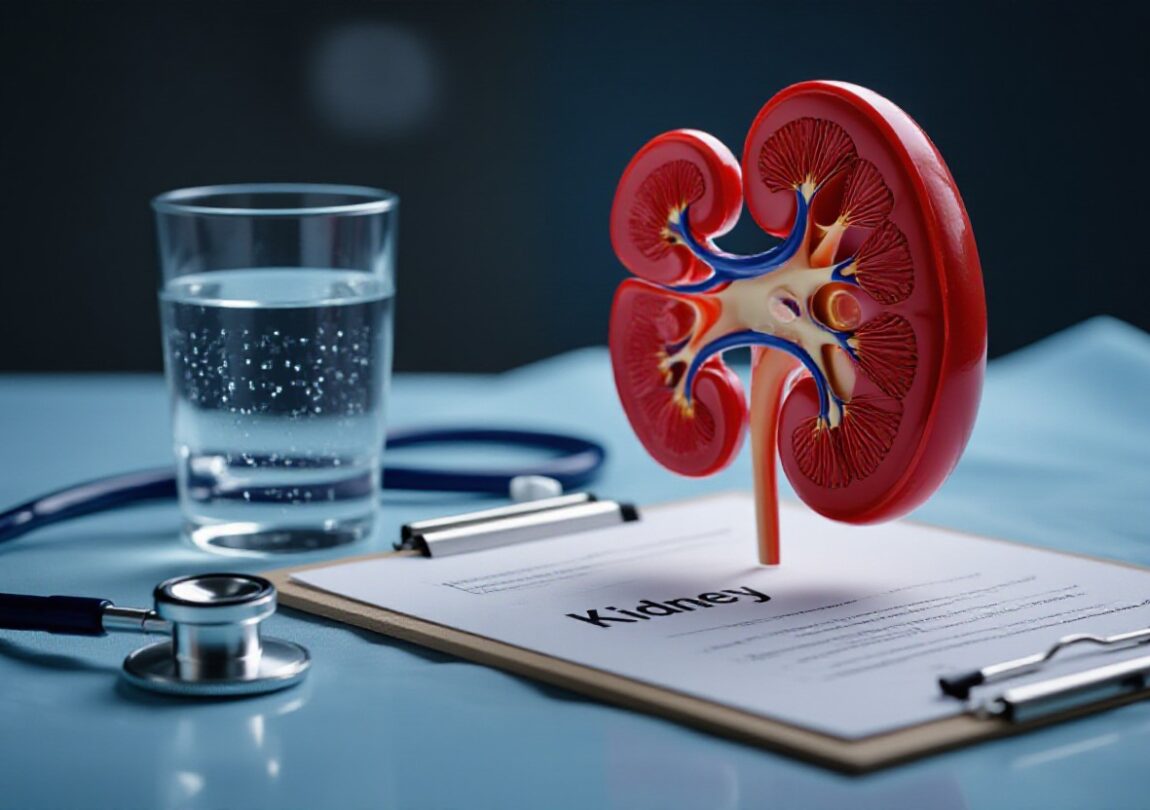

Health research shows that even mild dehydration can lower your mood and impair thinking within minutes, so when you drink water it can instantly boos ...

Many people believe upping water intake will instantly clear skin, but you should view hydration as one effective element within a complete skincare a ...
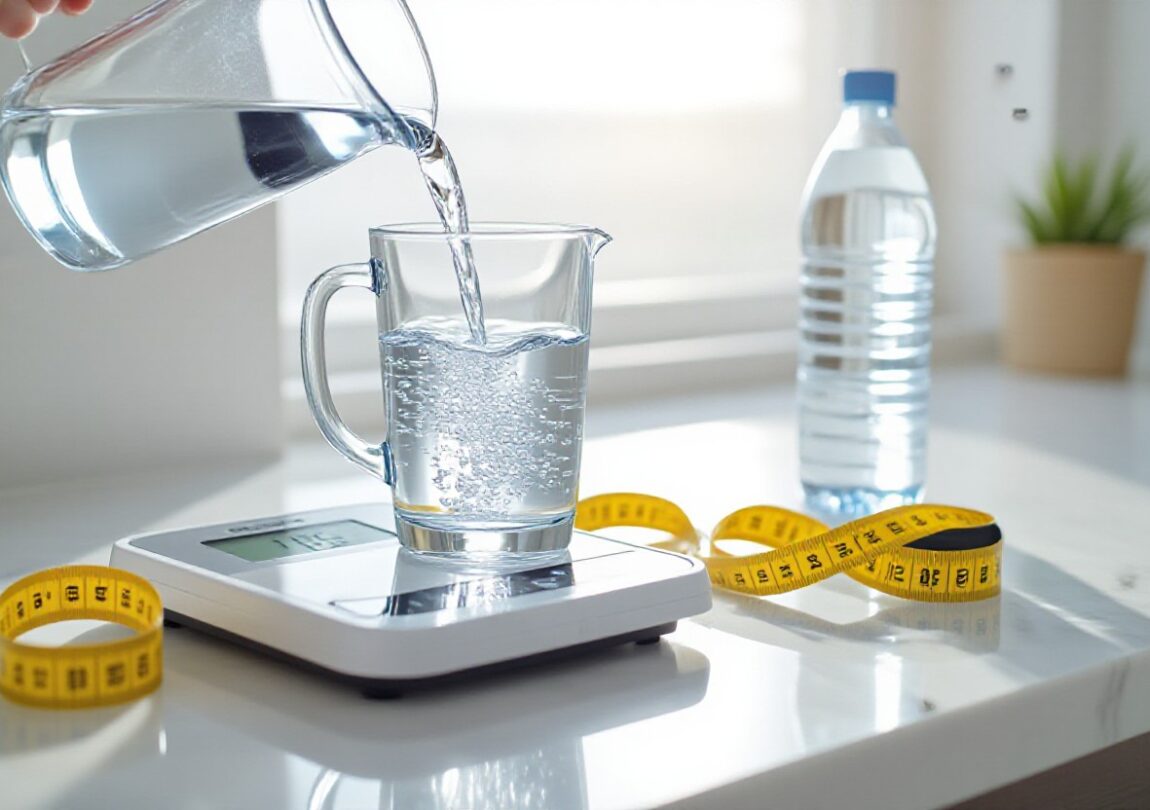
Many studies indicate that increasing water intake before and between meals can help you reduce calorie intake and increase metabolic rate , supporting ...
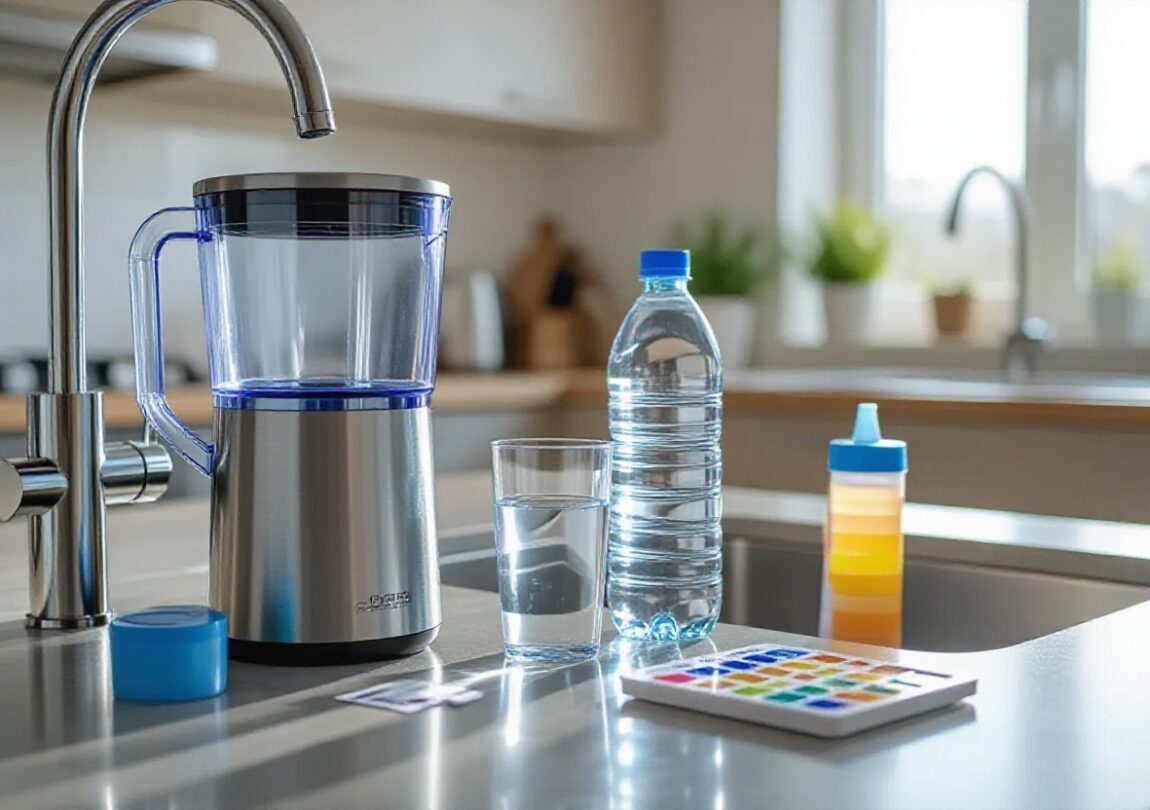
Most households depend on water daily, so you must prioritize choosing the right source to protect your loved ones; testing and treatment reduce expos ...